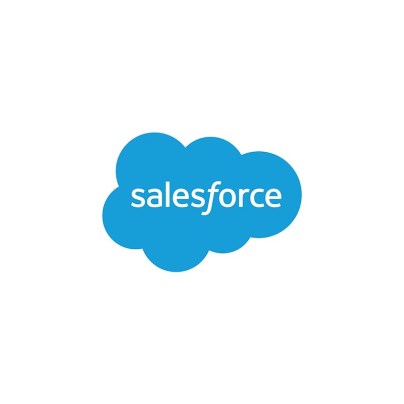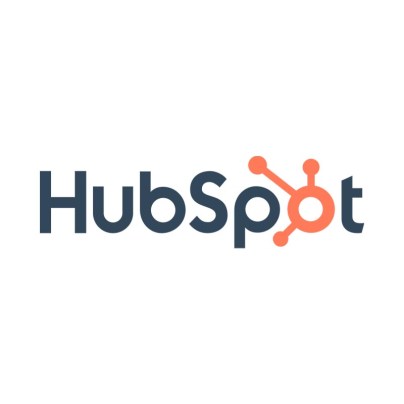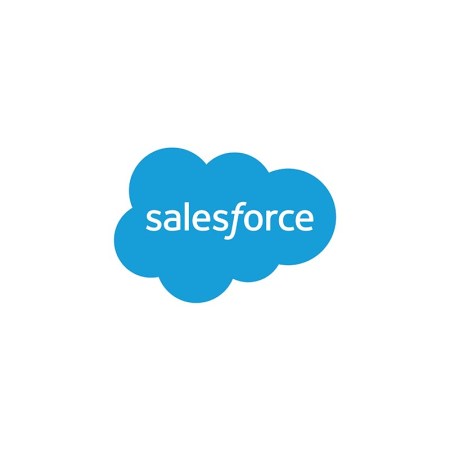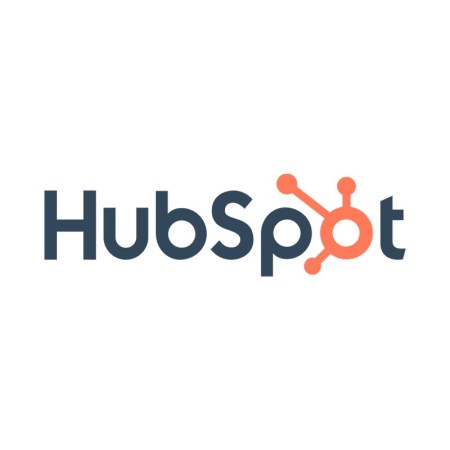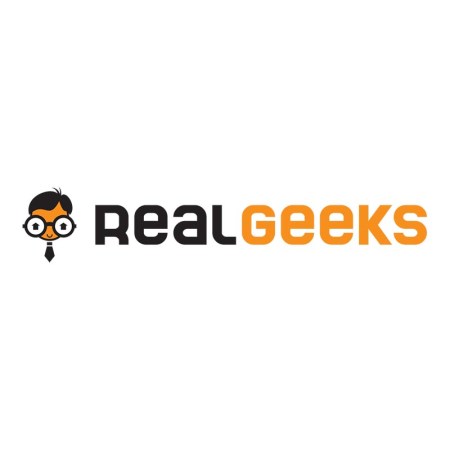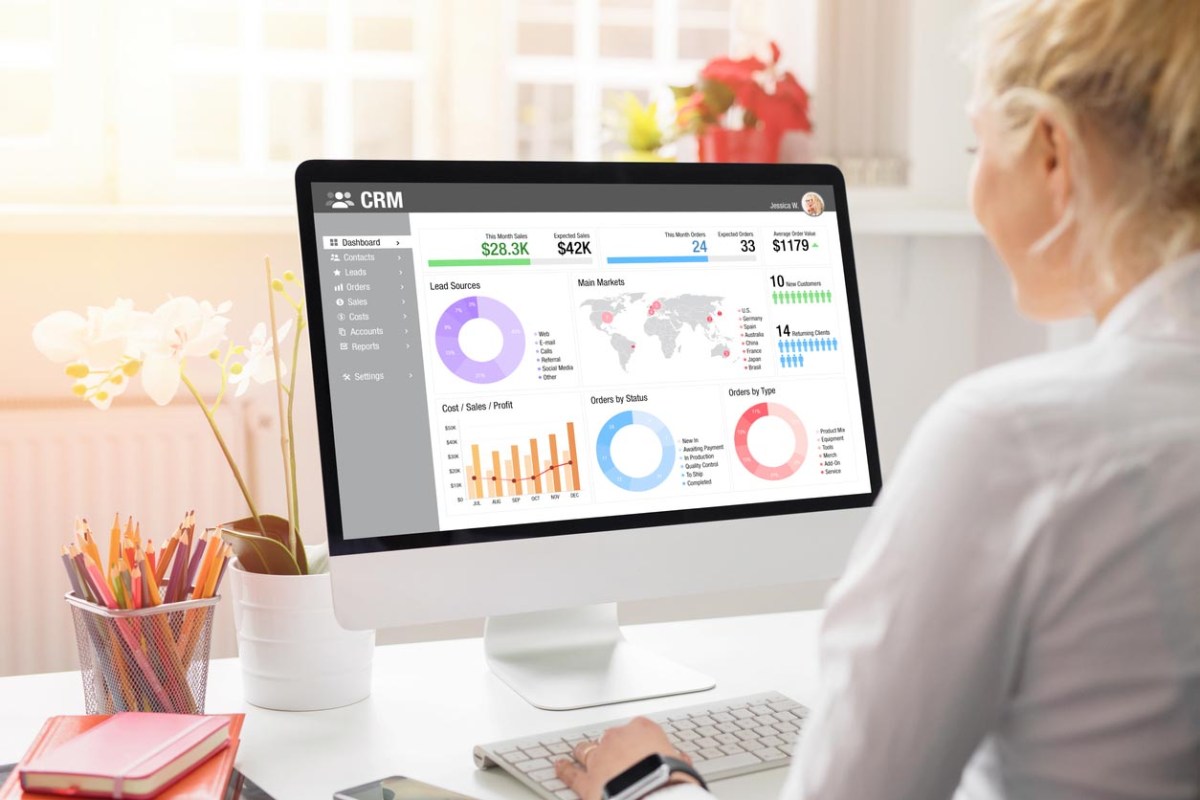
We may earn revenue from the products available on this page and participate in affiliate programs. Learn More ›
Real estate is a relationship business that requires agents to juggle a list of current and past clients while constantly attracting new prospects. Keeping track of it all takes work. But regardless of whether it’s for a one-person office or a team of agents, real estate professionals are finding that customer relationship management (CRM) software can be a game changer for improving organization, efficiency, and customer outreach. CRM can help perform any number of tasks beyond just offering one central spot to store all contacts. Many CRMs also provide insight into customer data and behavior, assist in tailoring communications for better engagement, manage lead generation campaigns, arrange follow-ups, sync calendars, automate business tasks, and more.
With so many choices for CRMs, real estate professionals may quickly feel overwhelmed in identifying the best solution for their business. There are many types to consider, such as a real estate CRM marketing specific, solutions focused on back-end business operations, or all-in-one solutions. Software features may be geared to lead generation, transaction management, reports, analytics, and more. Also, to target specific niches, there are real estate investor CRMs, commercial real estate CRMs, and real estate broker CRMs. This guide can help weigh the many factors in choosing the best real estate CRM for a business.
- BEST OVERALL: Top Producer
- RUNNER-UP: Salesforce
- BEST BANG FOR THE BUCK: HubSpot
- BEST TECHNOLOGY: Real Geeks
- BEST MOBILE APP: Market Leader

What to Consider When Choosing One of the Best Real Estate CRM Software Options
CRMs for real estate can help manage contacts and calendars, upload documents and contacts, oversee real estate leads and track lead generation or email drip campaigns, and more—all from a single dashboard. They may offer automation features, like delivering automated text messages whenever a new lead comes in from the internet or offering opportunities for collaboration, such as inviting parties in a transaction to view documents and ask questions.
Subscription Plans and Cost
Many CRMs offer paid subscription plans, whether via monthly or annual fees. Plans are often available for individuals or multiple users, such as for an entire brokerage or team.
CRM systems can vary considerably in price points, and options are readily available to fit every budget. A free CRM for real estate option may even be available, but these can be more limited in features and data storage. Free options, however, may be particularly helpful to those who are new to using a CRM and want to test one out or even for those starting their careers who may have smaller databases. Costs for CRMs can skyrocket into thousands of dollars. Some programs do not have pricing readily available and require users to contact the company for a specialized quote.
Marketing and Lead Management Features
As leads come in from across the internet or in-person encounters, CRMs can help track all contacts in a searchable database. Many CRMs also can break down leads based on specific parameters such as clients’ budgets, how soon they’re looking to buy or sell, preapproval status, and more. This capability allows users to prioritize leads and tailor communications that speak directly to where customers are at. Automatic responses to inquiries—which can save time—will increase response rates and set the user apart from the competition. Many CRMs also offer the ability to enter leads into drip email campaigns for staying in touch. Lead management and marketing features are often cited as a benefit of using a CRM to coordinate and monitor the progress and effectiveness of various campaigns.
MLS and Software Integrations
Some CRMs may be able to pull information directly from the multiple listing service (MLS) and send information on properties to clients based on their home search criteria. The CRM also may be able to keep a broker’s website automatically updated with new listing information to avoid having to do this manually.
Also, many CRMs offer third-party integrations to avoid juggling between several programs in a business. Real estate agents may be able to narrow their CRM search based on how compatible it is with the current software they frequently use. Many CRMs integrate with third-party software programs, such as transaction management systems, calendars, lead generation programs, email, or video services. But users will want to beware software integrations should not be assumed and, in some cases, may be an add-on cost to a CRM subscription plan.
Website Builder Tools
A real estate CRM with website tools allows users to build custom websites to market their services or brokerage. The benefit of having a CRM integrated with a brokerage website is that it can analyze visitors’ behavior on the site, which can serve as vital data points that can be used to target communications based on their individual search parameters. CRM website integration can add personalization, marketing automation, customer support, and more to streamline business operations.
Mobile App Availability
The best real estate CRM programs include a mobile app. Accessing a CRM, whether in an office or out on the field, is critical for a real estate road warrior constantly on the go. It can help make the user more responsive and offer access to customer and transaction details wherever the day takes them.
CRM mobile app capabilities may vary depending on the program. Users won’t want to assume all features available from a computer’s desktop will be accessible via the mobile app. For this reason, it’s always a good idea to check with the provider and consider what is available from a mobile or tablet device.
Our Top Picks
When shopping for a CRM, real estate professionals can quickly feel overwhelmed by the number of choices. Also, someone who isn’t a tech whiz may be intimidated by judging a software’s specs and compatibility against their current programs. This guide is intended to help, identifying top picks that showcase the wide spectrum of choices in the growing CRM tech sector.
Best Overall
Top Producer
Why It Made the Cut:
Top Producer casts a wide net so that no lead gets lost with its connections to more than 150 lead sources across popular real estate websites—the highest number of lead sources offered by any of the major CRM competitors.
Top Producer, one of the first CRMs to debut in this space, provides a number of robust features, including client management, website development, and free MLS integration. It connects directly with the MLS and can pull hundreds of pieces of information on current listings, sold properties, and expired listings, offering the ability to deliver market-level data to contacts. It can automatically send real-time reports to new leads or coordinate longer-term follow-ups to ensure users stay in touch with clients over the long haul. Its social insights tool allows a review of contacts’ social media activity, allowing the user to put a face to a name and personalize outreach. Users can receive information about the contact’s occupation and interests to plan customized follow-ups. Top Producer also offers “smart lists,” which is the ability to group customers into lists for more targeted campaigns.
The Top Producer CRM offers a deeper dive into how users interact with sent emails, such as insights into who’s opening and reading the messages, so that the user can identify their most engaged leads. Given its wide offerings, Top Producer may have a learning curve in setting up the many automations offered within the software. But customer support and video tutorials can help users learn the ins and outs of the program. Also, users can access one-on-one coaching for personalized advice and business practices for lead follow-ups.
Specs
- Cost: $109 monthly for 1 user for Pro plan; $299 monthly for up to 5 users for Pro Teams plan
- MLS integration: Yes
- Mobile app: Yes
Pros
- Integration with over 150 lead sources
- Free 1-on-1 coaching available
- Advanced reporting capabilities
- Customer social media insights gathered for improved follow-up experiences
Cons
- Somewhat challenging automation design
Runner-Up
Salesforce
Why It Made the Cut:
With cutting-edge predictive analytics built in, Salesforce can offer a comprehensive view of customer pipelines and everyday tasks to clarify priorities and business decisions.
Careful tracking of data insights mixed with predictive artificial intelligence (AI) can help real estate professionals make better-informed forecasts that drive revenue. Salesforce, an early adopter of AI, has “Salesforce Einstein” that can be used in marketing, sales, service, and more. For example, it can anticipate sales opportunities and customer needs and even offer predictions on which customers to prioritize in a database. Also, it connects to contacts’ social media content, allowing agents valuable insights to personalize their marketing.
Salesforce offers real-time visibility reports, quick filters, out-of-box key performance indicators, and extensive app and software integration libraries. Forecasts can help uncover sales insights and trends to get a clear picture of business directions and marketing. Salesforce also offers one-on-one status updates in coaching sessions. While this CRM does require more of an up-front commitment by billing for the year in advance, users can access a free trial to decide if the software is the right pick.
Specs
- Cost: $300 annually per user for Essentials plan; $1,200 annually per user for Professional plan; $2,100 annually per user for Enterprise plan; $3,900 annually per user for Unlimited plan
- MLS integration: Yes
- Mobile app: Yes
Pros
- End-to-end sales management
- Customer social media insights gathered for improved follow-up experiences
- Extensive app and software integration library
Cons
- Annual commitment required
Best Bang for the Buck
HubSpot
Why It Made the Cut:
HubSpot has free tools for an entire team to use, and that no-cost offer may be particularly attractive to those on the fence about financially committing to a CRM.
HubSpot’s CRM offers plenty of user-friendly features geared to sales, service, marketing, contact management, and tracking of business operations—and for free. The CRM can be used to organize communication with leads, prospects, and customers. Users can track and analyze sales activity and chat with prospects in real time. The software includes built-in scheduling features that allows users to schedule calls or meetings with leads directly from the program without switching back and forth to another calendar or scheduling program. Users can create team profiles for collaboration and set goals and tasks to keep a team on track. Additionally, HubSpot’s CRM can support up to 1 million contacts for free.
One limitation with its free option is that HubSpot does not offer customer support by phone; that is only available for those with a paid Enterprise plan. The Professional and Enterprise plans allow users to unlock more CRM features, such as the ability to save up to 1,000 email templates for customer contacts.
Specs
- Cost: Free; $5,400 annually for 5 users for Professional plan; $14,400 annually for 10 users for Enterprise plan
- MLS integration: Yes
- Mobile app: Yes
Pros
- Free to use
- Up to 1 million contacts supported
- Convenient built-in scheduling features
Cons
- No phone support for free plan
Best Technology
Real Geeks
Why It Made the Cut:
Real Geeks’ solution has a keen focus on lead generation, using artificial intelligence features to gain, nurture, and convert leads.
Real Geeks offers a lot of automation with its AI-backed features, known as Geek AI. It can identify potential clients who are exhibiting key selling or buying behaviors, such as those who frequently visit the site or view the same listing multiple times. The CRM will then automatically send a text to these individuals to spark engagement. This frees up an agent from having to manually filter lists and contacts or craft messages themselves. Geek AI can chat with prospects 24/7, using buyer- and seller-specific scripts to get conversations started—and all with the purpose of booking an appointment. Geek AI will keep the user informed of the conversation so that they can choose when to jump in.
The Real Geeks’ CRM also includes websites that feature MLS integration that can be linked to the CRM. This allows automatic tracking of every new prospect who visits the user’s site, providing more data insight into prospects. It also has a built-in home valuation tool, in which visitors can submit their address to find out what their home is currently worth. This can help generate new leads to add to the user’s database. Real Geeks also offers Facebook marketing, allowing the ability to capture new leads that come in from Facebook ads. Pricing is not readily available for Real Geeks’ CRM, and potential customers can reach out to the company for a customized quote based on their business size and needs.
Specs
- Cost: Custom quote required
- MLS integration: Yes
- Mobile app: Yes
Pros
- Lead contact facilitated with Geek AI
- Enhanced lead-reaction feature
- Built-in home valuation tool to capture more leads
Cons
- Pricing information not readily available
Best Mobile App
Market Leader
Specs
- Cost: Custom quote required
- MLS integration: Yes
- Mobile app: Yes
Pros
- Sleek, optimized mobile app experience
- Efficient lead-acquisition process
- Built-in real estate training guides
Cons
- Pricing information not readily available
- Somewhat limited customizability
Why It Made the Cut: Market Leader has a robust mobile app with all of its CRM’s core features for accessing real-time reports, alerts, contacts, emails, and more while on the go. Market Leader offers marketing automation, lead generation, website development, MLS integration, and abundant customer relationship features. Its Leads Direct offers a pay-per-click advertising campaign that can drive consumers searching for home listings on Google, Bing, and other search engines to the user’s branded IDX website. Also, all lead information, including home search criteria, can then be sent directly to the CRM, freeing agents from manually inputting it. The Market Leader CRM also helps brokerages progress toward business goals. It offers marketing and business workbooks, and these can be used to help agents identify their commission goals and set up strategies to meet them. The CRM helps track progress on multiple fronts, although it does not have pricing information on its site. Also, while Market Leader can be used for website development, some users may find it limiting if they want to build sites focused on blogs or videos. But Market Leader’s optimized mobile app experience can benefit those agents looking for an all-in-one solution that can be completely accessed via a phone or tablet.
Our Verdict
Top Producer is a market leader in this software class and stands out because of its integration with more than 150 lead sources, which allows agents to cast a wide net for capturing leads and responding faster within a CRM. Also, Top Producer’s automation features can ease the burdens of keeping in touch, and its social insights tool helps to stay updated on their clients and leads. Another long-time leader in the CRM realm, Salesforce offers abundant cutting-edge predictive analytics built in to help inform forecasts, marketing, communications, and more. It offers one of the widest arrays of apps and integrations of the CRM programs evaluated for this guide.
How We Chose the Best Real Estate CRM Software Options
To help narrow a search for a solution, the CRMs featured in this guide were reviewed for lead management offerings, MLS and software integrations, costs, availability of website builder tools, and mobile-friendly features. The list of the best CRM software for real estate was developed from extensive research. We carefully vetted brand reputation and user reviews. The CRMs recognized in this guide have served as long-standing options in the sector but are constantly developing new features to respond to real estate professionals’ business needs.
Before You Use One of the Best Real Estate CRM Software Options
Professionals often use some of the best real estate websites to capture leads online and may already have a system for collecting, categorizing information, and coordinating customer responses that come in. That may be as simple as a spreadsheet. But the more leads a user has coming in, the more they may need one central spot to keep everything organized. Most CRMs also have automation tools to help simplify recording tasks and integrate with other third-party programs to make a seamless connection in everyday business operations.
CRMs for real estate agents come in all shapes and sizes and are offered with a range of features. The best CRM for real estate agents will greatly depend on a business’s personal needs, comfort level in learning new technology, budget, and more. Some brokerages or larger real estate firms may offer their own specially developed CRM system that may prove a good option to explore in fostering greater collaboration among peers. But many out-of-box CRM solutions on the market also offer plenty of opportunities for customization and accommodating multiple team members as well.
Cost of Using One of the Best Real Estate CRM Software Options
CRMs have various pricing structures, everything from free to monthly or annual subscription plans. Pricing options may be broken down for just an individual subscription or to accommodate multiple users so that an entire team can collaborate within the same program. Given the multitude of pricing options, a brokerage’s budget may serve as a major parameter to help narrow options.
Newer agents may find using a free option is sufficient as they start to build their database, while a more seasoned agent with a larger database may want to consider extra features available in paid plans, like those that include greater automation and report analytics about their sphere. Before committing, users can schedule a demo or a free trial to check the ease of use and how well it can be implemented in everyday business.
The Advantages of Using One of the Best Real Estate CRM Software Options
The best CRMs for real estate allow users to track their clients and prospects carefully and better coordinate follow-ups and monitor everyday business operations. Some of the benefits of using a CRM in real estate include:
- Accessing a central hub for managing all contacts, including contact information, transaction history and deadlines, and possibly a record of all user interactions with clients;
- Coordinating outreach and communications to help manage leads, improve response time to inquiries with automation tools, and segment contact lists based on specified criteria to create targeted campaigns; and
- Gathering analytics and reports to track data and view dashboards (often with AI capabilities), reviewing metrics to inform outreach campaigns, and identifying business revenue drivers.
FAQs
Managing a database of hundreds of clients who may be at various points in a real estate transaction is no easy feat. A CRM can help. Here are answers to a few commonly asked questions to help shoppers decide which one may work best.
Q. What is the easiest CRM for real estate agents?
The CRMs included in this guide have been carefully vetted and are long-time leaders in the CRM field. They have resources such as customer support or video tutorials to help users learn their programs. Scheduling a demo with the company or taking part in a free trial of the program may help decide your comfort with its ease of use.
Q. Is CRM difficult to learn?
If the difficulty of a CRM is a concern, users can seek out solutions that offer customer support (whether online or via phone), video tutorials, and step-by-step guides or resources for troubleshooting or responding to any questions. All CRMs can have a learning curve, as is often the case in adopting any new technology. Users can take part in free trials or schedule a demo to learn more about the programs they’re considering.
Q. What are the 3 types of CRM?
Three main types of CRMs are analytical (those that focus on gathering data, insights, and information to learn more about leads); operational (which can automate and streamline business processes and efficiencies); and collaborative (those geared to creating more seamless connections and communications among a team or clients).
Q. Why do so many CRM projects fail?
CRMs most commonly fall short because users may rush to adopt a tool without fully considering their business needs and objectives or devoting the time to learn the tool. Also, users will want to carefully consider how well the CRM integrates with third-party programs already being used, from emails to calendars. Also, if the CRM is to be used for a team, it’s important to make a point to schedule training for the entire team so that everyone learns how it works.
Q. How do I use a real estate CRM?
There are so many ways! You can use it to automate responses to clients, prioritize leads and pinpoint who in a database is the most likely to buy or sell soon, share client information with team members, manage real estate sales pipeline at every step, capture new leads, create ad campaigns, build websites, and so much more.
Q. Why should I use a CRM?
CRMs have become a favorite tool among real estate agents because they provide a central hub to managing contacts, whether that’s a new lead or current or former clients. CRMs can help tailor communications for keeping in touch, arrange for automated client follow-ups, gather detailed analytics on customers to inform business decisions, and provide automation capabilities (e.g., drip campaigns for outreach) to improve efficiencies and productivity. Many CRMs also provide a dashboard to help view and improve the workflow for an individual or entire team.

